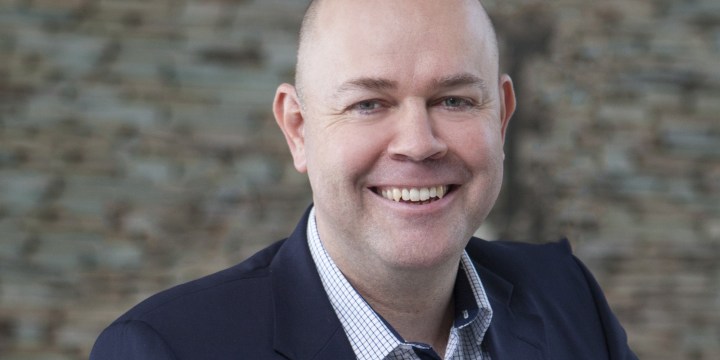BUSINESS MAVERICK
The unit trust industry is about to be revolutionised

The South African unit trust industry is plagued by manual processes, outdated technologies and remains light on disclosure. This is something blockchain can help. The country’s first blockchain-backed trading platform will not only bring automation to an entire life cycle of unit trusts transactions, from order placement through to the settlement and payment, but will afford more people access to a wider selection of unit trusts.
Local stock exchange ZAR X aims to go live with its distributed settlement system for unit trusts by the end of the year. ZARX is currently in negotiation with a diverse selection of asset managers to take up the cause.
The technology allows for the unit trusts and cash to be digitally replicated as tokens on the same ledger, which allows for immediate trading, settlement and payments to reflect in real-time once the fund NAV is published.
“This alleviates common friction points that exist today, including areas such as reconciliation and settlement, which are resolved automatically with all transactions being performed in the same environment,” says ZARX CEO Etienne Nel.
In contrast to the current legacy approach of having administrators/Linked Investment Service Providers (LISPs) manually manage ownership of the fund’s unit-holders, and with every application, switch or withdrawal requiring an application form to be completed and signed, in a centralised database distributed information-sharing and decentralisation system, that only has to be done once for a nominee account, as transactions transpire on the blockchain.
Research from Calastone forecasts more than £1.9-billion worth of potential cost savings for the global mutual funds market as a result of moving to a blockchain-enabled distributed market infrastructure, stripping out many of the inefficiencies currently embedded in the system.
Earlier in 2019, the UK-based global mutual funds network migrated all of its 1,900 clients in 41 countries on to a blockchain platform. The company processes £170-billion of investment value each month. The new access point also allows the public to purchase and settle unit trusts directly from fund managers in a secure environment.
Currently, no such centralised facility exists. You can’t go to a central point and draw relevant details, choose between different managers and subsequently transact, says Nel. While it is possible to do this on some unit trust portals offered by local asset managers, the selection of funds they offer is always limited; the same goes for third-party fund administrators and LISPs.
Financial advisers are not bound by a fiduciary duty: advisers can make recommendations they feel are appropriate rather than presenting their clients with all possible choices.
“More importantly, tokenisation could open up investment in assets to a much wider audience thanks to reduced minimum investment amounts and periods,” says Nel.
“Investors will be able to view scheme portfolios and fact sheets get constructed automatically and available with real-time updates on ZARX’s website. It is much easier to compare funds and costs.”
A study on investor funds by Morningstar shows that South African unit trust fees are among the highest in the world, yet disclosure thereof remains poor.
Although LISPs have become cheaper and more uniform over the years, the choice is dictated. Your fees are generally higher annual fees than unit trusts by 25-35 basis points. (A basis point is one-hundredth of a percentage point).
Portfolio manager at PSG Wealth Schalk Louw says although LISPs have become cheaper and more uniform over the years, doing your homework properly remains extremely important when attempting to select the right one. Fees vary at different investment sizes for the various platforms — so do not assume it is a “one-size-fits-all” choice.
The gold standard for unit trust cost is the Total Expense Ratio (TER), and according to Asisa, it includes asset management and administration fees, custody costs, trustee fees, audit fees, bank charges, taxes, interest rate charges, costs of buying and selling units from investors and scrip (securities) lending costs.
Distribution costs associated with investment platforms, stockbrokers, the issuer (in the case of unit trusts) and financial advisers, as well as costs associated with LISPs are excluded from the calculation.
Investing via the ZARX platform eliminates all financial adviser or LISP fees, custody fees and fixed monthly fees. Nel says they go by a “free to get, free to hold, pay as you go” mantra. Instead of monthly administration fees, investors pay per transaction, which is 0.35% of the value thereof.
All the costs and calculations of real-time values of unit trusts available on its platform will be stated in real-time, and accessible at the click of a button via the ZARX apps.
As it stands, such comparisons, its impact on performance and determining the latest net asset valuations of the 1,600-strong unit trust fund universe, are also not an easy, even impossible, feat.
Information on the web from respective service providers are not easy to find, published on various platforms, and are not reflected in a standardised way.
TERs — excluding distribution cost of course, for all collective scheme investment funds are available on the Asisa website, but only accessible for one fund at a time, and which are unit trusts — and not hedge funds, for example — is not made apparent.
The data provided on fund prices is a direct feed from Profile Data, Asisa states, and adds a caveat that they are unable to verify the accuracy or completeness of this data. Performance data is only published once every quarter.
Some other free platforms such as Sharenet report on daily NAV values, but also state that not all funds report data on time, or at all, which doesn’t sketch a full picture or in real-time. BM


















